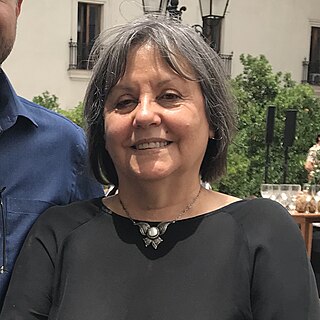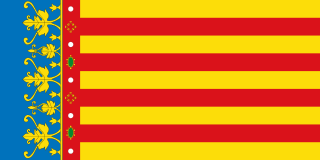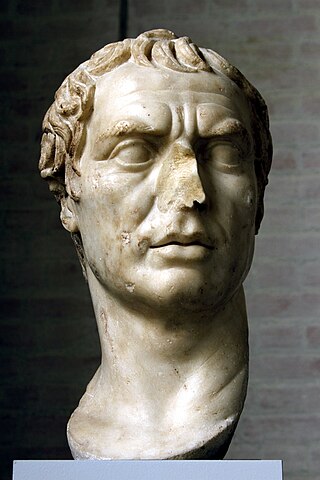
Enric Valor i Vives was a Spanish narrator and grammarian who made one of the most important contributions to the re-collection and recovery of Valencian lexicography and its standardization in the Valencian Community, Spain.

The Battle of Ilipa was an engagement considered by many as Scipio Africanus’s most brilliant victory in his military career during the Second Punic War in 206 BC.

Diamela Eltit is a Chilean writer and university professor. She is a recipient of the National Prize for Literature.
The Premio Planeta de Novela is a Spanish literary prize, awarded since 1952 by the Spanish publisher Grupo Planeta to an original unpublished novel written in Spanish. It is one of about 16 literary prizes given by Planeta.
Marcela Serrano is a Chilean novelist. In 1994, her first novel, Para que no me olvides, won the Literary Prize in Santiago, and her second book, Nosotras que nos queremos tanto, won the Sor Juana Inés de la Cruz Prize for women writers in Spanish. She received the runner-up award in the renowned Premio Planeta competition in 2001 for her novel Lo que está en mi corazón. Carlos Fuentes has quoted her description of the modern woman as "having the capacity to change skin like a snake, freeing herself from the inevitability and servitude of more obsolete times."

Juan José Millás is a Spanish writer and winner of the 1990 Premio Nadal. He was born in Valencia and has spent most of his life in Madrid, where he studied philosophy and literature at the Universidad Complutense.

Roberto Ampuero is a Chilean author, columnist, and the former Minister of Foreign Affairs of Chile, a position he held from March 11, 2018 to June 13, 2019. His first novel ¿Quién mató a Kristián Kustermann? was published in 1993 and in it he introduced his private eye, Cayetano Brulé, winning the Revista del Libro prize of El Mercurio. Since then the detective has appeared in five novels. In addition he has published an autobiographical novel about his years in Cuba titled Nuestros Años Verde Olivo (1999) and the novels Los Amantes de Estocolmo ) and Pasiones Griegas. His novels have been published in Latin America and Spain, and have been translated into German, French, Italian, Chinese, Swedish, Portuguese, Greek, Croatian, and English. In Chile his works have sold more than 40 editions. Ampuero now resides in Iowa where he is a professor at the University of Iowa in the Department of Spanish and Portuguese. He was a columnist of La Tercera and the New York Times Syndicate and since March 2009 has been working as a columnist for El Mercurio. Between 2013 and 2014 he was Minister of Culture in the government of Sebastián Piñera.
Gnaeus Cornelius Dolabella was a consul of the Roman Republic in 81 BC, with Marcus Tullius Decula, during the dictatorship of Sulla.

The Valencian Community is an autonomous community of Spain. It is the fourth most populous Spanish autonomous community after Andalusia, Catalonia and the Community of Madrid with more than five million inhabitants. Its homonymous capital Valencia is the third largest city and metropolitan area in Spain. It is located along the Mediterranean coast on the east side of the Iberian Peninsula. It borders Catalonia to the north, Aragon and Castilla–La Mancha to the west, and Murcia to the south, and the Balearic Islands are to its east. The Valencian Community is divided into three provinces: Castellón, Valencia and Alicante.

Antoni Canals (1352-1419) was a Dominican friar, orator and writer. He was born in the Kingdom of Valencia and he was famous for his sermons and by three translations or adaptations of classical works into Catalan.

Publius Cornelius Scipio Africanus was a Roman general and statesman, most notable as one of the main architects of Rome's victory against Carthage in the Second Punic War. Often regarded as one of the greatest military commanders and strategists of all time, his greatest military achievement was the defeat of Hannibal at the Battle of Zama in 202 BC. This victory in Africa earned him the honorific epithet Africanus, literally meaning 'the African', but meant to be understood as a conqueror of Africa.

Carlos Franz Thorud is a writer from Chile, who also holds Spanish citizenship.

Susana Fortes is a Spanish writer and columnist.
Felipe Maria Garin Ortiz de Taranco was a Spanish writer, researcher and Academician of art.

María Concepción Alós Domingo, better known as Concha Alós, was a Spanish writer. She was a recipient of the Premio Planeta de Novela.

Dolores Redondo Meira is a Spanish writer of noir novels, author of the Baztán Trilogy, and winner of the 2016 Premio Planeta de Novela literary prize.

The Fernando Lara Novel Award is given annually in Spain by the José Manuel Lara Foundation and the Planeta publishing house to an unpublished novel in the Spanish language. The publication of the finalist (runner-up) work is not expected, although it is sometimes published by Planeta itself.
Vicente Muñoz Puelles is a Spanish author and translator. He has published over 240 books, including over 180 for children and young adults, as well as almost 500 articles on literary criticism and fiction.













